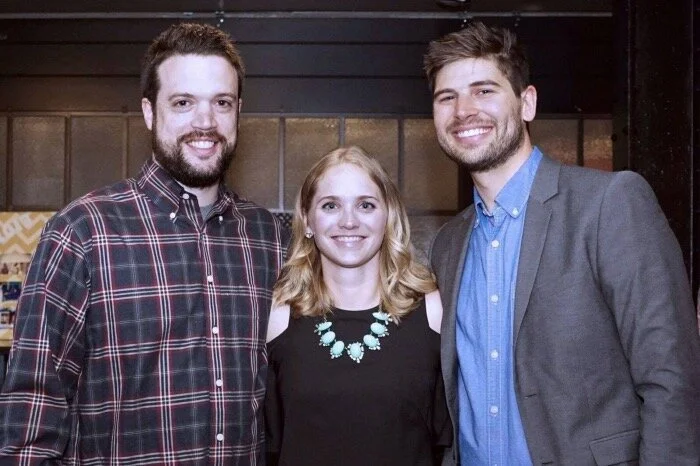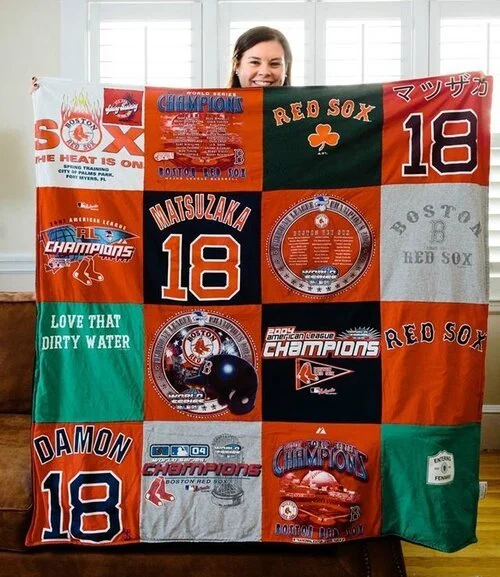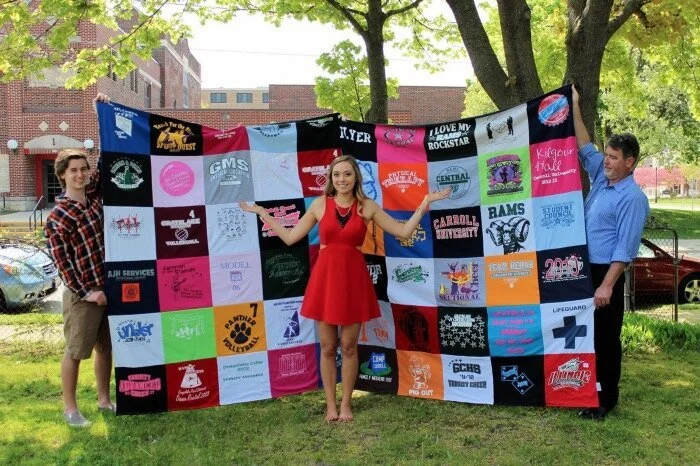Changing the textile industry, one custom Project Repat quilt at a time
Inspiration often comes from the most unexpected of sources. For Nathan Rothstein and Ross Lohr, this was certainly true for their life-changing business idea. It all started in Nairobi, Kenya, when the two business school friends were on a visit for non-profit education work. While sitting in traffic, they noticed a Kenyan man wearing a t-shirt with the words “I Danced My Ass Off at Josh’s Bar Mitzvah”. This got them thinking about how so many t-shirts are castaway every year, and how these shirts could be repurposed for different functions.
Reduce, reuse, recycle
They quickly realized the endless possibilities repurposing old t-shirts and started remaking them into bags, scarves, re-fabricated t-shirts, and more. Christine Pochily, Nathan and Ross’s Community Manager, says “they were just trying to think of a great way to make something with T-shirts, and kept getting people asking them to make an affordable Tshirt quilt.”
And so they did.
Nathan and Ross not only wanted to create meaningful t-shirt quilts for their customers, but also knew that their business could serve a greater purpose. When building their business idea, Nathan and Ross noticed huge social and environmental issues surrounding today’s businesses. First, they found that thousand of textile jobs have moved overseas. Nathan and Ross wanted to change this and bring textile jobs back to the U.S through mass production using U.S mass production partners. This plan to “repatriate” textile jobs back to the U.S gave birth to their company name, Project Repat.
On top of this social movement, Nathan and Ross still wanted to aid existing environmental problems. Over 5% of the trash on Earth is made up of used textiles. With 3.8 billion pounds of used textiles thrown away every year, Nathan and Ross wanted to stop these garments from piling up in our landfills. They realized the fix could come from Project Repat. With their t-shirt quilts, Project Repat customers could turn in their old t-shirts and repurpose them into something they could use forever. And if that wasn’t already an impressive way of saving the Earth, to hold together the t-shirts the company uses PolarTec fleece, which is made out of recycled bottles. This specialty fleece repurposes 23 plastic bottles per yard that would otherwise end up in landfills! This innovative method of recycling is what sets Project Repat apart from many other textile companies.
Ironing out the problem
Growing more and more every year, Nathan and Ross’s Shopify store was thriving off orders for their custom Project Repat quilts. But like with any store, handling order modifications can get tricky, especially if your store is one that specializes in custom items.
“A lot of people buy on impulse their t shirt quilts, then after realize the panel size they had was incorrect or they actually have more panels so they want to upgrade their quilt or they chose the wrong fleece color,” explains Christine. “So we have a large quantity of customers who do need to edit their order.”
For Christine, using Cleverific Order Editor to fix these issues with their repat quilts has provided much-needed help for handling customer service and order modifications.
“Order Editor is great for us because it helps us avoid cancelling orders and having to refund people completely.”
With Order Editor, Christine can just open a quilt order that needs to be changed and adjust it without troubling the customer to make a new order. She has found it to be a big contributor to their great customer service.
Sew on success
After 5 years of operation, Project Repat has given the gift of memorable t-shirt quilts to over 100,000 customers. Their unique business success has landed them features in top media outlets like Forbes, CNN, Entrepreneur, and MSNBC. This company stands out from the rest, not only because of it’s meaningful custom items, but also for its minimal carbon footprint. It hopes that other textile companies will follow in its footsteps as a pioneer for social and environmental causes.
Read more Shopify + Cleverfic Order Editor success stories



